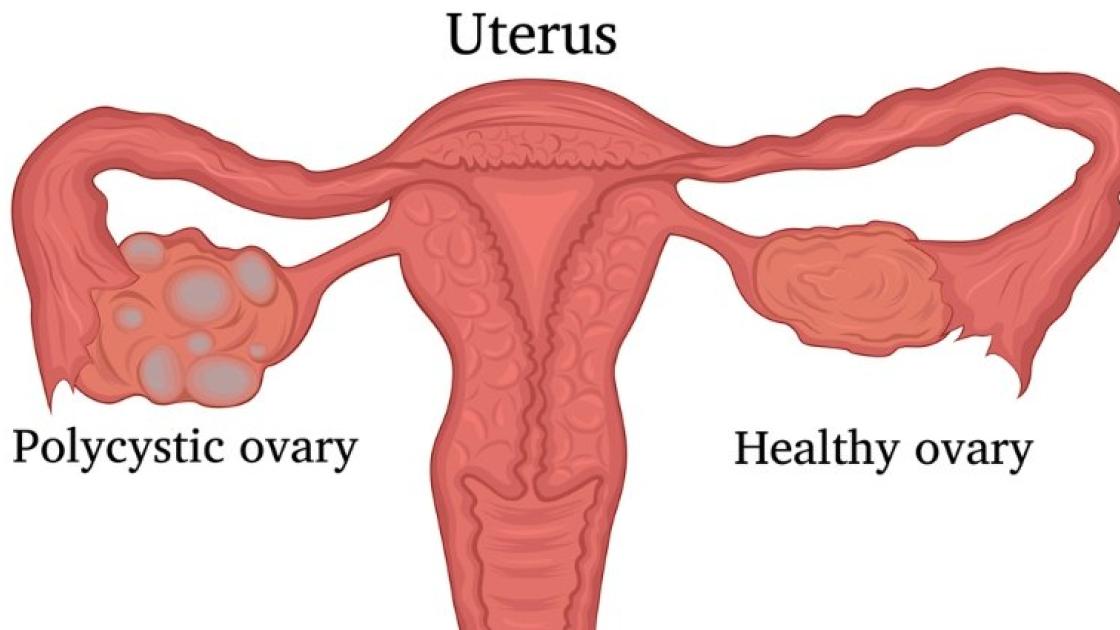
Understanding PCOS: signs, causes, and treatment
Have you heard of polycystic ovarian syndrome, or PCOS for short? This condition affects a surprising number of women of childbearing age—about 1 in 10, in fact. However, even younger girls can be diagnosed. PCOS is one of the leading causes of infertility and it can cause a number of other troubling issues for women and girls affected by it.
At SIU Medicine, our women's health team offers a variety of insightful and effective treatments and services to help women struggling with PCOS feel more in control of their reproductive health and family planning.
What is PCOS?
There's no single test used to diagnose PCOS. Instead, doctors use a variety of tests and measures to rule out other conditions and confirm a diagnosis. The condition is generally considered an endocrine disorder. It's believed to be caused by hormonal imbalances in a woman's body. Hormones at play may include:
- Estrogen and progesterone, made by the ovary
- Luteinizing hormone, made by the pituitary gland
- Insulin, made by the pancreas
- Testosterone, made by the ovaries and adrenal glands
If these and other hormones in a woman's body become imbalanced, PCOS can develop. This can cause a woman's menstrual cycle to become abnormal and prevent an egg from developing or releasing properly during ovulation.
Who gets PCOS?
Any woman who has gone through puberty can develop PCOS, no matter what her age. It's not always clear what causes PCOS or why it happens, but research indicates certain women are at a greater risk of developing the condition if they:
- Are obese
- Have diabetes
- Have a family history of PCOS
Common PCOS signs and symptoms
Women with PCOS may present with a variety of unique symptoms and signs. The most common ones include:
- Hirsutism (excessive hair growth in areas where men typically grow hair, including the upper lip, chin, chest, abdomen and/or back)
- Hair loss on the scalp
- Skin darkening/hyperpigmentation (often around the groin, in the creases of the neck, and beneath the breasts)
- Moderate to severe acne
- Skin tags (especially around the neck and armpits)
- Irregular menstruation cycles (e.g., unusually long or sporadically missing periods, or no periods)
- On ultrasound imaging the ovaries may be enlarged and have multiple cysts, which is how PCOS gets its name polycystic ovarian syndrome
- Infertility
- Obesity
- Depression
- Lowered sex drive
- Abnormal lab tests (including elevated levels of certain hormones called androgens)
Women with PCOS also appear more likely to be diagnosed with other health conditions including sleep apnea, high blood pressure, high cholesterol, heart disease, and endometrial cancer. As you can imagine, seeking proper medical care as soon as you notice any signs and symptoms of PCOS is important! It could save you or your loved one's life.
Treating PCOS at SIU Medicine
The best treatment for PCOS is one that is individualized to meet the specific goals and needs of the woman diagnosed with the condition. Certain factors may affect a woman's plan of care, including whether she wants to have children or not. Common treatment options include:
- Medications to alleviate symptoms, restore hormonal balance (e.g., hormonal birth control), and improve blood sugar levels and other related issues
- Lifestyle modifications (exercise, diet, stress management, smoking cessation, etc.) to improve overall health, help manage symptoms, promote a healthy weight, and avoid long-term health complications
It's possible for women with PCOS to get pregnant, though it may be more difficult. Having PCOS also increases the risk of complications like miscarriage, preeclampsia, gestational diabetes, cesarean delivery, macrosomia (unusually large baby). Working closely with an OB/GYN is important for expecting moms who have PCOS.
Are you concerned about PCOS signs and symptoms?
Right now, there's no cure for PCOS. But with the right treatment from a medical team you trust, you can live a full and fulfilling life! Call SIU Medicine today at 217-545-8000 to schedule an appointment with a women's health specialist and gain back control over your reproductive health.




